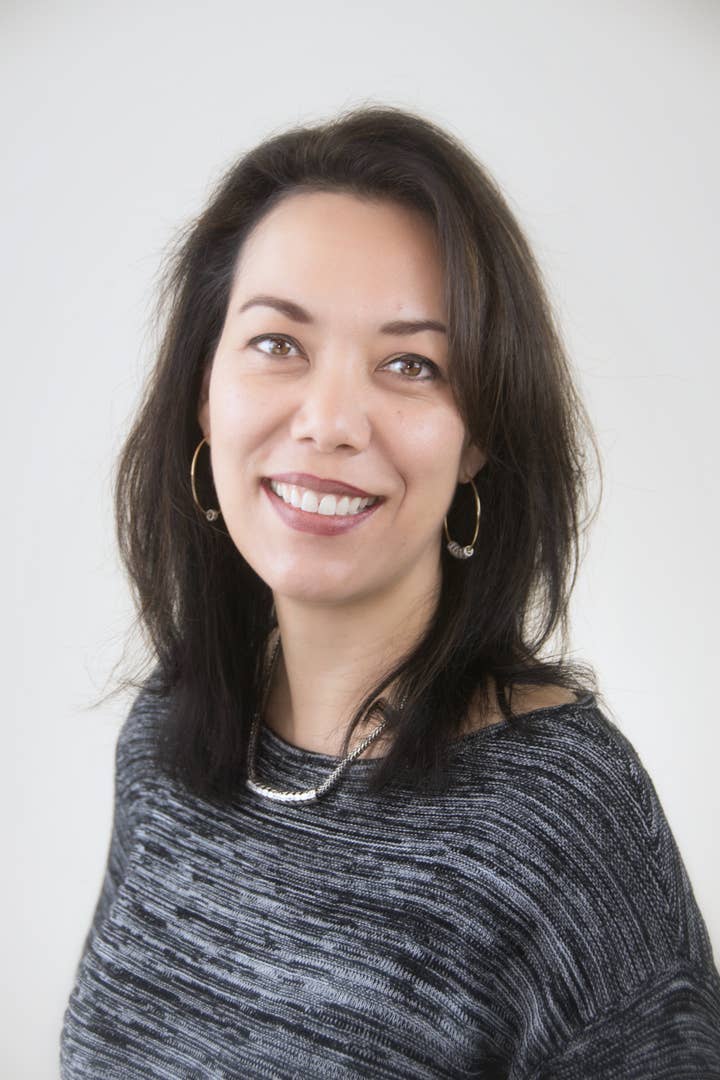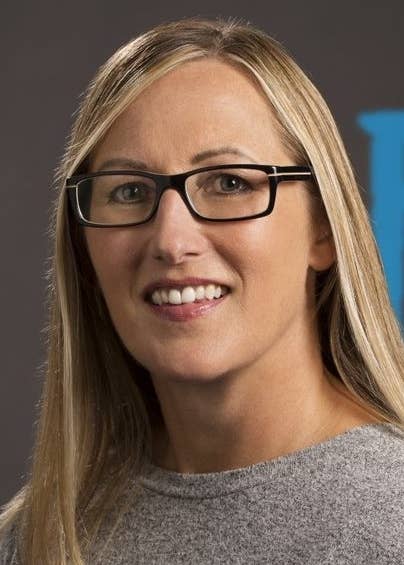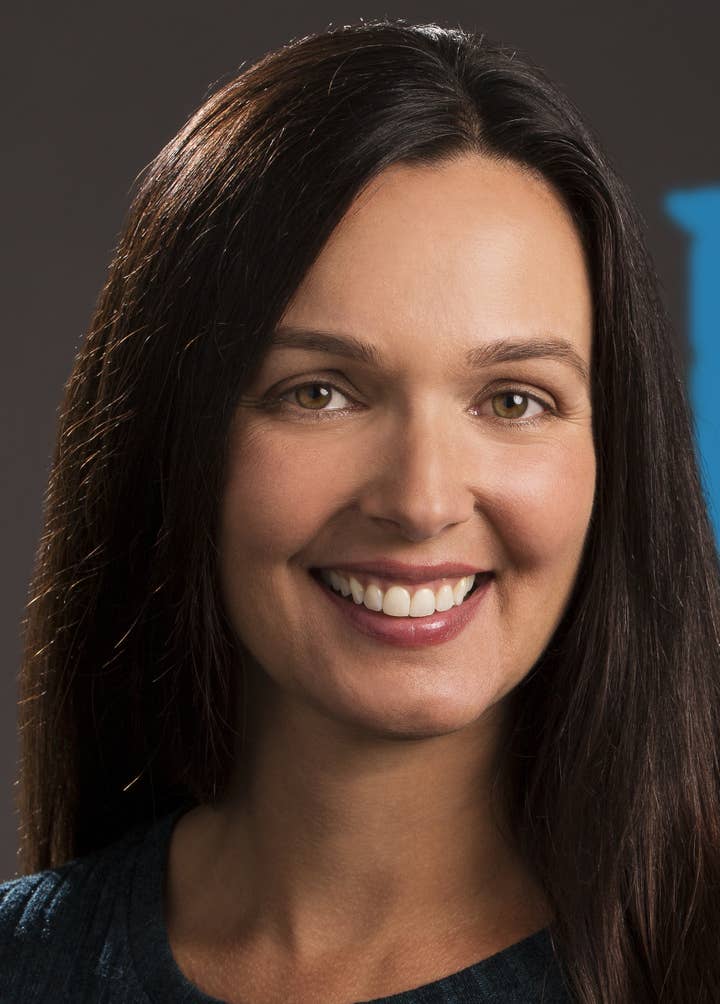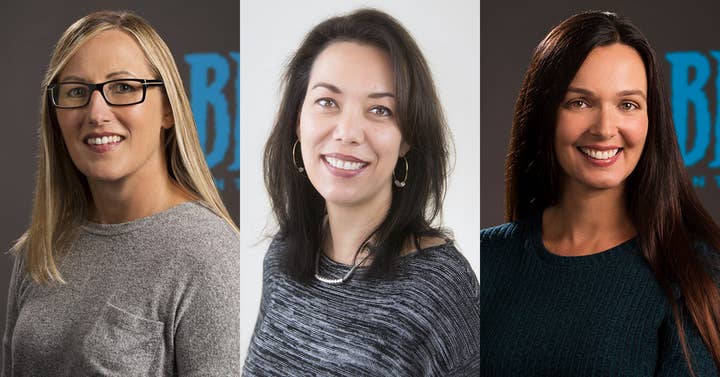Blizzard: "We want women shaping the future"
The Warcraft publisher''s Lydia Bottegoni, Jen Oneal and Saralyn Smith share their experiences of helping to diversify AAA at an executive level
The face of the AAA games industry is almost always white and male.
While more and more female-led studios are emerging from the indie space, a brief glance at the decision-makers and most frequent spokespeople from the high-end of games production and publishing show the gender imbalance at work in this business.
Feminist Frequency's annual gender breakdown of E3 presentations, which are dominated by AAA games firms, showed only 23% of presenters from last year's summer broadcasts were female. For the last E3 proper in 2019, this figure was 21%. Four out of every five people representing the games industry were men.
It's something a trio of executives from Warcraft and Overwatch publisher Blizzard are keen to see change.

"It's important across any industry, and at any level, to have representation and diversity," says Jen Oneal, executive vice president of development. "You get a lot more innovation when you have diverse thoughts that come into play. Diverse teams work better together. They're not reiterating each other's ideas but bringing new perspectives to the table.
"And gaming is entertainment. [We need to] authentically represent the voices of our players. They come from all walks of life and we need to reflect that throughout our ranks."
EVP of story and franchise development Lydia Bottegoni adds: "Games are also a business. A business we're passionate about, but it's a business nonetheless. And there's been study after study that prove diverse workforces make good business sense -- they're more profitable, the results are always stronger. It seems like a no brainer.
Saralyn Smith, executive producer of annual fan event Blizzcon, says this goes beyond just video games but into all technology-based industries: "We want women shaping the future, and technology is so pervasive now in all aspects of our lives, and gaming is so mainstream. We want women guiding and driving a lot of that direction as well."
All three have different experiences of the imbalance. Bottegoni considers herself "a newbie to the games industry" having only joined Blizzard -- and, by extension, games -- five years ago. But her work in the world of computer graphics told a similar story; in the late '90s, she frequently found herself to be the only woman in the room, whether it was a meeting, a screening, or just working on a team of artists.
"I just had to become comfortable with that," she says. "That was two decades ago in the computer graphics industry, and I think it was the same in games. Today, after five years at Blizzard, I personally don't see that any more. I haven't really witnessed the experiences that I hear about, the stories I hear from some women who have been in the industry a lot longer than I have."
"We want women shaping the future. Gaming is so mainstream - we want women guiding and driving a lot of that direction as well"
Saralyn Smith, Blizzard
Oneal, on the other hand, has "been in the business for decades" and acknowledges there weren't many women in production when she started out. But she adds: "There may have been barriers but I didn't notice them because I was excited to be in this business -- I probably went out of my way to out-work everyone else so I could try to shine."
Smith tells a slightly different story as she comes from a different side of the company. Her ten years at Blizzard have been spent in a mix of marketing and operations roles rather than game development, and as such many of the teams she has worked on have been 50% women.
"So I haven't had the typical experience you hear about from the engineering teams that are underserved in terms of diversity," she says.
While the trio agrees that things are improving, certainly when compared to the start of their careers, the work is far from over -- particularly in AAA. What's needed is for more executives to step up to the plate and help encourage change, regardless of their gender.
"I personally feel that responsibility as a leader in this kind of company," she says. "I notice when I go out and interview women coming out of college and figuring out what career they want to pursue... When they think about video gaming, we have a reputation and we have to be leaders in resetting that reputation as a place that can be welcoming and inclusive. All of us have this responsibility to change the way people think about the industry and make an environment where everyone feels like they can belong."
Oneal acknowledges she didn't always have the same commitment to this. Before moving into senior positions, she would typically "keep my head down and focus on work." But as she rose through the ranks, more women began reaching out to her for advice and support.

"They want you to be visible, present and talk about your story," she says. "There's a real desire to get mentorship from folks in our positions. Of course, some of the pressure is self-imposed: I feel that it's my duty to help other women in the industry rise up."
Looking specifically at the notion of mentorship, Oneal recognises there's a need for more women to offer one-to-one guidance for future talent -- although there are some male mentors doing their part to help elevate female executives.
"Throughout my whole career, all of my superiors were men and I've had great mentors in that regard," she says. "But there have been times when I just wanted to seek the council of another woman in a senior position. If that's within the company, great, but sometimes I've gone outside the company. There are more than you realise, and having that support network can be valuable."
But while it's important for more women to be made visible as executives and leaders in the AAA space, Bottegoni believes it's equally important for those women to be personally invested in the message they send.
"For me personally, I say yes to and participate in the things I feel authentically passionate about, things I'm deeply committed to like gender equality and LGBTQ representation," she says. "Toxicity in the games space is a really important topic to me because I have daughters [who play], so I try to put my energy into things I can show up to and speak with a really authentic voice.
"It has to start at the top, with the male allies. The men in power have to do something about it"
Lydia Bottegoni, Blizzard
"A lot of big companies like to dance out their token people in different diverse categories and constantly use them in the press and speaking events and whatnot. I feel like you can spot that at times -- you can spot the person that feels like they were shoehorned into that position."
She continues that while putting more women into the spotlight will be key to encouraging and elevating others to rise through the industry, it's crucial that this is not solely a women-led effort.
"Because there is that imbalance of power at the top -- and there is -- it has to start at the top, with the male allies," she says. "The men in power have to do something about it."
Internal efforts are just as vital as the faces a company presents to the world. For the past three years, Smith and Bottegoni have been running the Women's Advisory Council -- one of several diversity and inclusivity groups Blizzards operates for its staff. This is a year-round effort, which hosts social gatherings but also runs a buddy program to help more women talk about any issues they have and explore where their careers might go.
Bottegoni emphasises the importance of running such a group all year, and not just highlighting its efforts on occasions such as the recent International Women's Day -- "we try not to make it a 'press beat' every year," she says -- but such ventures still face their own challenges.

Smith adds: "One of our ideas was to have a networking event. We wanted to have all the women come together on Blizzard campus, get to know each other -- and we ran into criticism for only inviting women and people who identified as women to the event, from both women and men.
"A lot of people showed up, but there's not a one-size-fits-all approach to this. There was a great power to seeing the hundreds of women that were there gathered together. There's a lot of nuance and we want to be inclusive, and since then we've always invited male allies to our networking events."
Finally, Bottegoni stresses the importance of diversity within a AAA games firm's products, not just its workforce. Her role around story and franchise development not only helps to seek ways to improve representation in Blizzard's video games, but also its cross-media products such as books and animated shorts.
Overwatch has been championed in some corners for the broad range of characters available to play as, and Blizzard aims to reflect this in all aspects of the brand. Last year's young adult novel The Hero of Numbani is set in an African city, features a Black heroine, and is written by a Black author.
Finally, Bottegoni adds this must also extend to marketing -- echoing recent comments to GamesIndustry.biz from Kulpreet Virdi, co-founder of fan movement Assassin's Creed Sisterhood.
"We work really hard to make sure our narrative development team has diverse representation in gender, ethnicity and any other point of view we can represent," says Bottegoni. "Our storyboard team, our writers, our directors, all of those teams. We work to make sure the story room has diversity in it because then the story is more diverse, the content is more appealing -- we don't leave audiences on the table.
"One of the things that really has to change is the industry is still marketing games to men. The marketing executives at these companies mostly aren't young folks because they've developed their careers, they've been around for a while, and they're still marketing games as if boys are the only ones who play them. They're leaving this huge segment of the audience on the table by doing that. We have to evolve our thinking and make sure women -- and all people in general -- feel included. People want to see themselves represented, and a diverse story room lands that."

